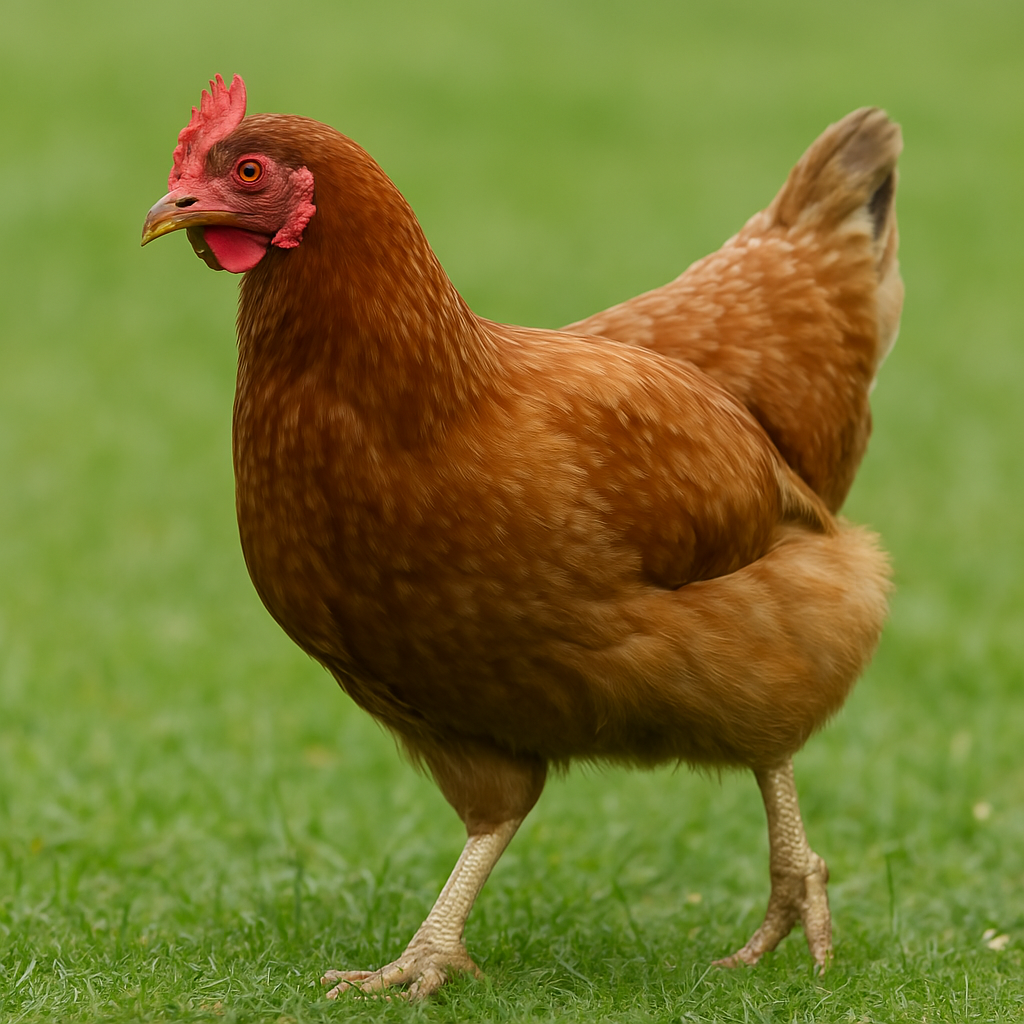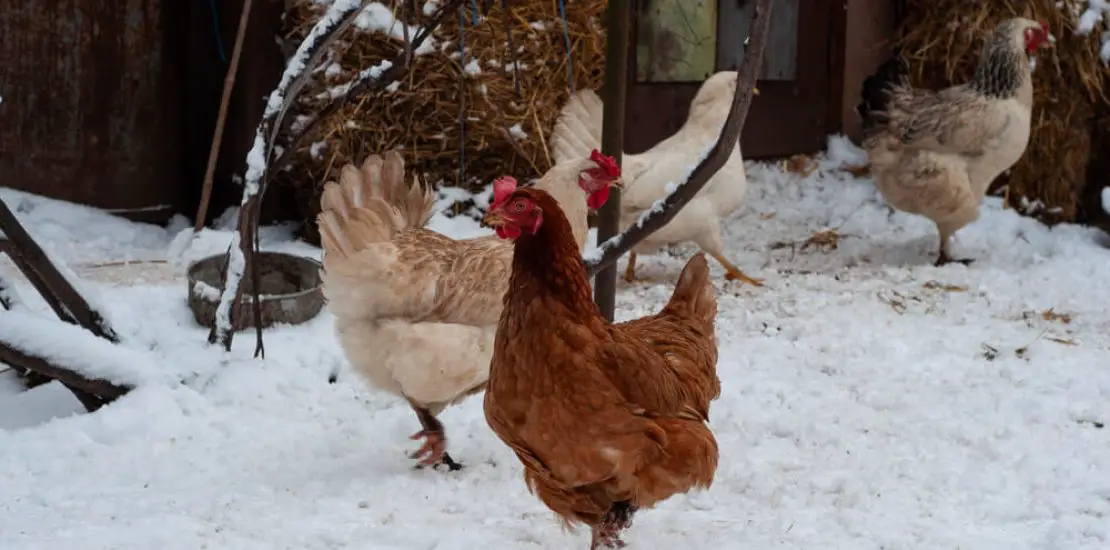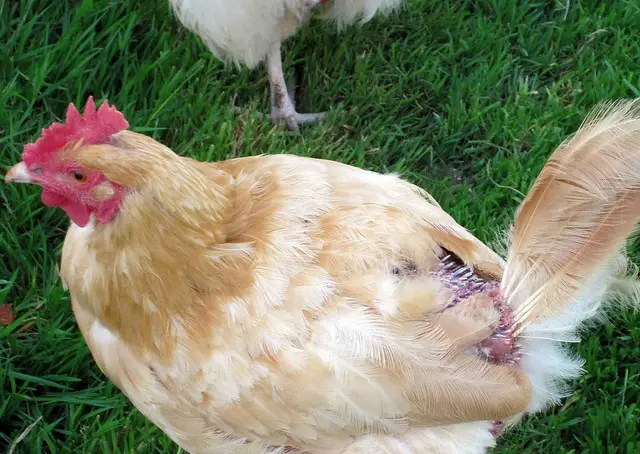In raising and maintaining chickens, it is very important that they are well cared so as to stay healthy and fit.
We have already discussed about the importance of having a healthy flock (look at the article on how to raise healthy chickens in few steps). The tips inside the article do really guarantee success.
However, sometimes chicken health problems are unavoidable, no matter how good and careful keeper you have tried to be. As a result, we made this article about most frequent chicken health problems and how to recognize the bad signals or symptoms and save your flock from a fatal end.
No worries. As early you detect the bad signals, you face less problems in their treatment.
Let us further see whether it is possible to recognize certain chickens’ health problems timely? So, the first question related would probably be the next.
When is my hen sick?
Anytime you suspect that your chicken or chickens are sick isolate them from the rest of the flock until you determine the cause. Although, at first glance the symptoms usually scared the keeper, they don’t have to mean that something really bad happens with your hens.
However, being vigilant is the best thing to do. We suggest that you notice on time any kind of physical or behavior change in you flock. Therefore, a careful observation may lead to a clue of the possible health problem around. There we go with the next possible questions.
Which physical changes among the hens are signals for a health problem?
While most of the scientific studies have shown that a physical deformity in chickens may suggest serious health issues, you should be aware of any possible, and ensure that your flock is not endangered.
The most frequent physical changes are: weight loss, scaly legs, foot wound, ear cyst, broken wings, dropping wings, bloody beak, paralysis of wings, legs and neck etc.
Which behavior changes should worry you?
Please pay attention to chicken behavior, if you notice something strange or unusual, try to find the cause.
Among the most frequent behavioral changes appear the following ones: reduced appetite, sleeplessness, low egg production, dropped heads etc.
Finally, remember the following: Although, maybe you are not vets, it doesn’t mean that you can never help your chickens. Just as a reminder: who knows better one’s flock than its owner?!
So this article in a way encourages you to be brave and determined.
Most probably you can’t scientifically diagnose the possible problem that destroys your flock, but at least you can try to cure your hens and provide them if not more, than a first aid surely.
Can you help your chickens to get over a sickness?
Even though this question is quite complicated, the answer would be of course that you can BUT only in certain circumstances. (see below the four common chickens’ diseases that you can treat to a certain level)
We said in certain circumstances because it depends on various factors such as: early or late detection of a problem, timely and suitable treatment provided or not, vet testing needed or not, possible chances for healing or fatal end on the other hand.
However, you shouldn’t worry or feel any guilty if you lose the battle.
As long as you look after your hens providing appropriate nutrition, fresh and clean water, clean coop, both suitable and enough number of nest boxes, dry bedding, dust bathing, run and exercise, keep them from predators etc. – you are a good keeper.
Beside all these things, you have to know that chickens are exposed to specific diseases too. That is why as a careful keeper it is always recommended to have a first aid kit including the following:
- Epsom salt for soaking feet
- Aspirin
- Disposable gloves
- Non stick- gauze pads
- Vetrap bandage
- Vitamins and electrolytes
- Tweezers
- Scissors
- Dog nail clippers
What follow now are some useful tips on how to treat four common chickens’ diseases.
Four common chickens’ diseases that you can treat
You can treat your chickens for common diseases such as: Diarrhea, Coccidiosis, Avian influenza, Fatty liver Hemorrhagic Syndrome (FLHS)
Diarrhea
Diarrhea is thought to be a common disease among the chickens. Droppings of healthy chickens are supposed to be brown (with a bit of a white part which is the urine of the chicken).
Bear this in mind, because in case you notice some yellow or blood droppings, then be sure that your chickens suffer from diarrhea.
Although, the causes can be different, as most common appear: kidney damage, high food protein intake or even high worms intake (this is rare, thus happens in cases when there are lots of worms in the chickens’ feed).
How to treat this disease
- Firstly, detect how many diarrhea affected chickens are there?
- Secondly, isolate the diarrhea affected chickens from the flock, in case the entire flock is the victim of diarrhea then no housing change is needed as all need same treatment and care.
- Increase the intake of probiotics
- Ensure clean and fresh water at all times
- If you don’t see any improvements, no delays but consult a vet immediately
Coccidiosis
This is very common disease among the chickens aged less than six months old.
The younger chickens have known to be more prone to develop such a disease, that the adult chickens. Adult chickens’ immunity level is much stronger than the younger ones.
Furthermore, Coccidiosis appears as a result of thriving bacteria within the chicken’s body that couldn’t be noticed that easily. Therefore, pay special attention to the droppings, any blood present, may indicate Coccidiosis disease.
Even if you give your hens the needed amount of nutritious feed, the digestive system of a chicken affected with Coccidiosis is unable to absorb the nutrients because of the existing bacteria.
How to treat this disease
- Above all, isolate the affected chickens first, same as in case of diarrhea
- Prevent the parasites from spreading (add Amprolium liquid to the chickens’ water. The liquid is commercially available).
- If you don’t see any improvements, consult a vet.
Avian influenza
The Avian influenza also known as bird flu, easily spreads from the affected chickens to the healthy ones. Unfortunately, when chickens catch the bird flu, 90 % of them die.
Moreover, experts reveal that some of the symptoms include: wet eyes, coughing, low appetite, ruffled feathers, respiratory distress, lethargy and sudden death.
Undoubtedly, most of these symptoms are very common for any other disease as well. Therefore, get a laboratory test of your chickens in order to identify Avian influenza.
How to treat this disease?
Honestly speaking, there is not a cure for Avian influenza. However, yet you can take precautions by vaccinating regularly your flock. The vaccinating certainly reduces the possibilities of catching bird flu.
Important: In these cases we highly recommend a vet consult.
Fatty Liver Hemorrhagic Syndrome (FLHS)
This FLHS disease can affect chickens of any age. A chicken affected by this disease has higher amounts of fat in its liver. By certain period of time the liver becomes so large that it started losing its strength.
Although, this disease can appear due to genetics, some causes include high calories intake, a lot of fatty foods or consumption of contaminated chicken feed.
How to treat this disease?
- Balance the protein intake in chickens’ feed
- Include variety of nutritious feed
- Include biotin rich food
Summary: What we strive to do is to offer some educational tips on how to recognize certain signals that may have a bad impact on your flock. Then, how to distinguish between fake and real alerts. What is more, we discussed about the most frequent health problems, supported by symptoms and causes as well.
Shortly, we are helping you to take the needed steps when facing any chicken health disease.
Always try to do your best, but when it doesn’t work an urgent vet care is obvious.
Share this content:


